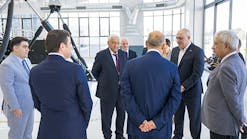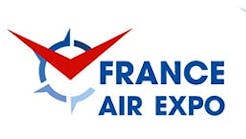In case you missed it … the FAA has published a proposed new policy change regarding the issuance and renewal of the Inspection Authorization authority routinely issued and renewed now every two years by your local FSDO. It has published this proposed policy change on the date noted above and it asks for your comments by Dec. 6, 2010.
Due to the large number of expected comments the cutoff date has now been extended to Jan. l7, 2011 to allow for further comment which of course will have passed by the time you read this. There may however be some people who are not even aware of this proposed change as they read this article. Late filed comments will be considered if they do not cause delay or added expense. So file your comments as soon as you can. The FAA says it expects to make this change effective for the upcoming IA renewal period starting March 31, 2011.
The Federal Register piece sets out a definition of “actively engaged” as follows …
Actively engaged
Actively engaged means exercising the privileges of an airframe and powerplant mechanic certificate in the maintenance of civil aircraft. Applicants who are employed full time in inspecting, overhauling, repairing, preserving, or replacing parts on aircraft are considered to be actively engaged.
However, the definition goes on to say that part-time or occasional work will have to be evaluated by an ASI to determine if the applicant is “actively engaged.”
The problem here is simply that the regulation in Part 65 clearly provides for renewal of the IA authority with the attendance at approved continuing education programs as an alternative to hands-on work. The proposal fails completely to address this critical aspect of Part 65.
Policy change not regulatory
This policy change is not a change to any regulation, at least at this time. What is being proposed is a more current understanding of what constitutes “actively engaged” which is in the language of the Part 65 regulation … A regulatory change would clearly be opposed in a most vigorous fashion and take much longer to implement. That is the reason the use of a policy change is perceived by FAA to be an easier route to a change.
The proposal states that the term “actively engaged” has caused confusion among ASIs and maintenance personnel, although if you talk to the many IAs in the field this is a non-issue and is not confusing to anybody. This seems to many as simply a lame excuse to do what they want to do, if in fact one is needed. The field personnel simply say that the system as presently existing has served us well and should be left alone. There are many other much more significant matters to address rather than one that is a non-issue, so say many working technicians. Many IAs have stated, for example, that the regulatory alternative of sanctioned and approved training programs are more important and produce equally qualified IAs vs. hands-on employment.
One can only speculate what the real reason for raising this non-issue at this time? Some have suggested that since there is a similar change in the works for flight instructors, as discussed recently during a meeting in Washington, D.C., adding to the requirements to renew their certificates. Some say that it is being prompted by an ill-timed and poorly thought out attempt to harmonize our regulations with European EASA regulatory mandates. Who knows? It could even be all about training money. But the action is certainly felt by many to be suspiciously related to EASA regulatory schemes. We will see what develops on this front. This column has previously described harmonization and the risks it presents to our maintenance and flight training industry.
FAA’s Guidance Document 8900.1
The document being proposed for amendment is the FAA “guidance” (to the FSDOs) for the issuance of Inspection Authority, in the Flight Standards Information management Systems (FSIMS), FAA ORDER 8900.1, Vol. 5, Chapter 5, Sections 7 and 8. The reference ASIs means FAA aviation safety inspectors. Here is the way the proposal in the Federal Register reads regarding renewal …
Amend Section 8 Paragraph 5-1309 by adding a Note after subparagraph (A)(1) to read 5-1309 …
Renewal of Inspection Authorization
a. Application Requirements: Application for renewal may be required to comply with the following: (1) Show evidence that applicant still meets the requirements of 65.91(c)(1) thru (4). Note: Refer to Paragraph 5-1279(A)-(C) of this document for information on meeting section 65.91(c)(1) through (4) requirements. Because Volume 1, Chapter 3, Section 2 of this order limits the type of maintenance that ASIs can perform, an ASI may renew an IA regardless of the volume of maintenance work (he or she) performed. (This of course refers to inspectors who happen to have Inspection Authority. ASIs are not permitted to perform maintenance in the field except for their own aircraft.)
This proposal clearly does not affect ASIs who also have IA authority and they can certainly work on and certify the airworthiness (perform annual inspections) on their own aircraft and perhaps others under certain restrictions. In this proposal, they do not have to show that they meet the requirements of 65.91(c)1 thru 4. Many airmen in their comments to the proposal have voiced objection to this “carved out exception” for ASIs. Most IA comments oppose the granting of automatic renewal for anyone including ASIs and that they should at least be required to participate in the approved seminar training activities that other IAs utilize to renew their authority as provided for in Part 65.
Further, many IAs maintain that this proposed change utterly fails to consider the unique nature of the contributions to overall safety in the general aviation field that senior IAs contribute, but who do not necessarily turn a wrench or are not employed full time as technicians. This clearly would contribute to a negative feeling toward the FAA and affect the morale of maintenance people at a time when our maintenance activities have been faced with serious economic challenges and jobs are scarce. This proposal seems to be poorly timed to say the least.
Bill O’Brien
Mr. Bill O’Brien, the former National Resource Specialist for the FAA in Washington, may he rest in peace, must be rolling over in his grave on hearing of this proposal which many comments by technicians suggest is a transparent attempt to disenfranchise a whole segment of our general aviation industry, in a failed attempt to clarify what does not need to be clarified. Indeed, Mr. O’Brien would most likely appeal to the Almighty, as the Man on the Cross exclaimed … Father forgive them for they know not what they do ….
Most IAs’ comments would acknowledge that Mr. O’Brien would strongly disagree with the proposal as it is currently written. He addressed IAs for many years before his passing and his strong support of the IA system as it presently exists is legion. In one of his most memorable writings he refers to the IA as a “Silverback,” the 800-pound gorilla of general aviation maintenance.” (See “Silverback” by Bill O’Brien, May 1995 AMT magazine.)
The FAA has long considered the IA designation as akin to a higher educational degree and is looked upon as a measure of the professional status of the holder. The FAA has itself elevated this person to a higher status than the certificated technician. This recognition of career advancement by the FAA, appears to be compromised in its proposal. It would have the effect of removing this recognition from the mostly senior IAs who work in management in the industry and or perform fewer maintenance tasks. It takes much experience and study to acquire the authority and it should not be so cavalierly threatened or removed by Flight Standards. Most of the persons concerned are senior members of the general aviation community and it would appear that they may be unfairly and perhaps unlawfully, targeted by this proposal. (Comments to [email protected])
Stephen P. Prentice is an attorney whose practice involves FAA-NTSB issues. He has an Airframe and Powerplant certificate and is an ATP rated pilot. He is a USAF veteran. Send comments to [email protected].




